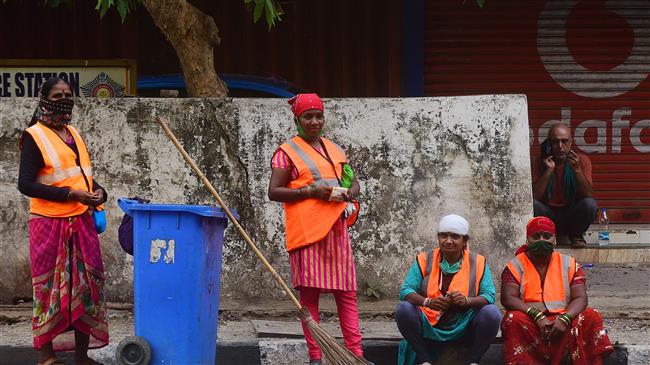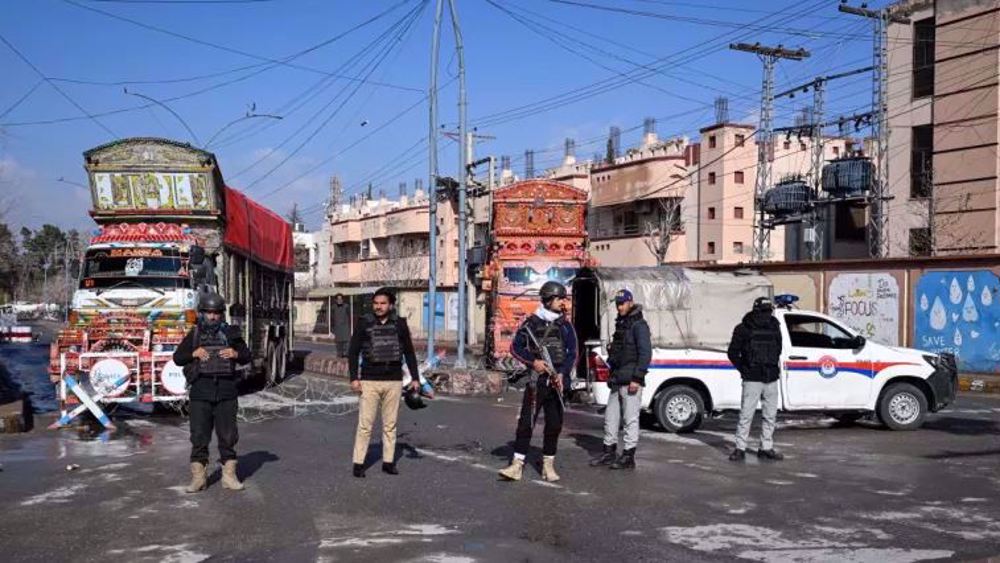Workers in India set to face longer days, lower pay in ‘race to the bottom’
Workers in India are set to face longer days and lower pay in a ‘race to the bottom,’ academics, activists and unions said, as six states plan to suspend labor laws to help industry recover from the coronavirus lockdown.
Despite a spike in COVID-19 cases this week, India is looking to ease its seven-week lockdown amid increasing pressure from business leaders and ordinary people who say the strict curbs have destroyed the livelihoods of millions of workers.
Labor specialists warn, however, that the decision of states to suspend federal and state labor laws enshrining workers' rights would push even more people into the informal sector, drive down wages and erode working conditions.
"It's not only regression, it's a deep slide into a bottomless pit and a race to the bottom of labor standards," labor economist K.R. Shyam Sundar, a professor at the Xavier School of Management, told journalists. "Other states will imitate (the six states)," he added.
Under the planned labor law suspensions announced so far, working shifts in the six states would be extended from eight hours to 12 hours for a three-month period. They also want to suspend legislation guaranteeing minimum wages and the formation of worker unions for up to three years, according to state documents seen by journalists.
Social security benefits including welfare funds or provisions for the health and safety of women employees would also be waived in some states.
Officials in the six states say the measures will help local industries to bounce back and reverse losses incurred during the weeks of lockdown and also lure new investment.
"This was done to improve investment and labor employment... We just want factories to restart," said one state labor official, speaking on condition of anonymity.
The federal labor ministry did not respond to a request for comment.
Already, more than 90 percent of India's 450 million strong labor force works in the informal sector with low wages and no social security. They have been hard hit by the closure of factories, building sites and other workplaces.
Rahul Ahirwar, a construction worker in northern Haryana state - one of the six that plans to extend the working day, said he expected to work more hours for less pay when he returned to his job, regardless of the labour law suspension.
"We work 10 hours in any case," he said by phone. "It's going to be difficult from here on. Our employers have had no income. How will they pay us?"
Trade union leaders said state governments had given businesses a green light to exploit workers.
"The new rules will create more conflicts and increase slavery," said Lenin Raghuvanshi, convener of non-profit People's Vigilance Committee on Human Rights.
Raghuvanshi, who has heard from workers being asked to work longer hours during the lockdown or being denied leave to go home, said states could have implemented softer measures such as overtime provisions instead of suspending labor laws.
India has eight million modern slaves, according to Australia-based Walk Free's Global Slavery Index and bonded labor is the most prevalent form of slavery in the country.
Economists say even factories and shop floors in the formal sector would start operating like sweatshops if staff were working 12-hour shifts without social security. And for workers already enduring poor conditions prior to the lockdown, labor experts fear things could get far worse.
"In most of the unorganized sector, the work hours are by default 12 hours and now the employer will extend it to 15," said Anoop Satpathy, faculty at the V.V. Giri National Labour Institute. "This (suspension of laws) will push many to poverty," said the former head of the labor ministry's panel on minimum wages.
While India's 28 states can make changes to the country's labor laws, such moves can be challenged in courts, according to parliamentarian Bhartruhari Mahtab, chairperson of the federal government's committee on labor.
"Some of the changes being proposed may not hold up in the courts," he said. "No attempt should be made to trample the rights of the workers ... industry does need to restart and therefore a balanced approach is the need of the hour."
Passengers flock to New Delhi station as trains services resume
Large queues of passengers formed at New Dehli's railway station on Tuesday, as limited train services resumed following a nearly seven-week long lockdown amid to the coronavirus pandemic.
Passengers wearing face masks were seen standing in line to get on board of some of the trains leaving the country's capital city towards other destinations, as police officers oversaw the compliance of social distancing measures.
"We had a lot of trouble during this lockdown. Nearly two months we were stuck in our houses and not allowed to go out. I am studying alone here. Now when I am going home, I am worried about what would have happened and what is going to happen," commented Shilpa Chouhan, one of the passengers stranded in Delhi due to the lockdown.
According to reports, more than 54,000 online tickets were issues after bookings were opened for passengers on Monday, with 15 trains a day connecting Delhi to big cities.
India's decision to resume train services comes at a time when over 74,200 cases of COVID-19 have been reported in the country and 2,415 deaths, according to data compiled by John Hopkins University.
(Source: Agencies)
20,000 patients stuck as Gaza demands full operation of Rafah crossing
Iran FM heads for Switzerland for indirect talks with US
Israel approves de facto annexation of West Bank; Hamas calls move ‘null and void’
‘Iran’s deterrence makes US think twice before taking any action’
Orban warns EU poses direct threat to Hungary’s sovereignty
Any confrontation with Iran will teach Trump a 'harsh lesson': Top general
VIDEO | Iran's Shahr-e Sukhteh: Uncovering 6000-year-old Bronze Age civilization
VIDEO | Massive pro-Palestine rally in Paris calls for sanctions on Israel











 This makes it easy to access the Press TV website
This makes it easy to access the Press TV website